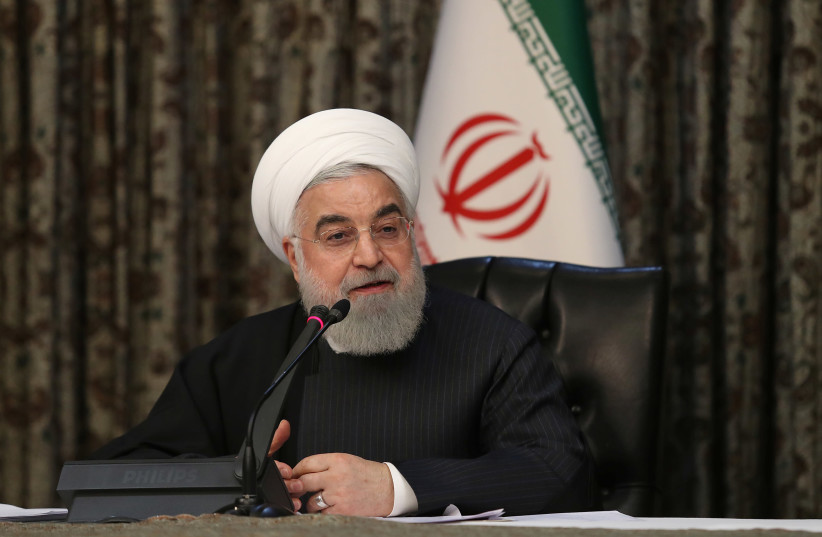For many Shi’ites this period is one of intense mourning and emotion but the Iranian regime also seeks to hijack the events every year to connect them to current events.
SETH J. FRANTZMAN

Iran is involved in a multi-day series of speeches and events linked to the month of Muharram and the Ashura holiday which commemorates the death of the Imam Hussein at the battle of Karbala. For many Shi’ites this period is one of intense mourning and emotion but the Iranian regime also seeks to hijack the events every year to connect them to current events, using the symbolism of martyrdom, battle and “uprising against oppression” to link Iran’s regional role to the historic Islamic period.
In Karbala in Iraq thousands have gathered to commemorate Hussein who was killed in 680 fighting the forces of the Caliph Yazid. Hassan Rouhani, president of Iran, gave a long speech commemorating Ashura and these holy days in which he linked the current Iranian struggle with the US with the past. He said that the battle of Karbala reminds us of the need to seek justice and to struggle against the deviation in the path of religion. He said that the uprising of Hussein against oppression is today a symbol for non-Muslims around the world. Iran has sought to push its version of the faith throughout the Middle East and the world, including more ceremonies in Syria and other places than in the past. “We always need the culture off Ashura, especially today in the face of all conspiracies, especially from the United States.”
In general Iran’s use of imagery linked to Ashura shows Hussein fighting against mobs and armies of what are supposed to be “oppressors.” Despite his defeat his legacy lives on and in general his killers are depicted as some kind of combination of Arabic tribes and modern day Islamist extremists. It is an odd juxtaposition that is meant to make Iran appear to be the heroic civilized nation fighting against savages. In this iconography the recent “martyrs” like Qasem Soleimani and Abu Mahdi al-Muhandis, the former a Quds Force commander of the IRGC and the latter an Iraqi militia leader both killed by the US, join the pantheon of Iranian “martyrs.” Their images dot the highways and airports in areas where Iran has influence.
“The resistance of the US against our diplomats will fail,” Rouhani said. “The US suffers defeat after defeat at the UN Security Council,” he said. He pointed out that Iran defeated a US attempt to end an arms embargo. Rouhani discussed Iran’s attempts to defeat US sanctions and the struggle against Covid-19. His speech had elements of messianic devotion to it, the idea that Iran’s regime and its allies in Lebanon, Yemen, Iraq, Gaza and Syria, are on a historic mission and entering unique times. Rouhani was largely seen as a “moderate” when elected but his regime has suppressed protesters, rapidly built new ballistic missiles, attacked countries in the region and uses religion wrapped in nationalism and militarism in the same way as past Iranian leaders.
This nation is subject to Imam Hussein, this nation is the follower of the same Imam and all should now be afraid. When the day of Ashura came and he [Hussein] saw in front of him the huge [enemy army] of 30,000 gathered he was not afraid to say ‘Allah, you are a trustworthy God, you are my refuge, I seek refuge in you in troubled times.’” If the US wants to understand the mentality it is contending with it should listen to Rouhani’s speech and the view that Iran’s regime is not entirely deterred and believes it is on a historic mission. Its belief is bolstered by its own media coverage of support it is getting from Russia, Iran and other countries.
cnxps.cmd.push(function () { cnxps({ playerId: ’36af7c51-0caf-4741-9824-2c941fc6c17b’ }).render(‘4c4d856e0e6f4e3d808bbc1715e132f6’); });
Content retrieved from: https://www.jpost.com/middle-east/iranian-regime-believes-defeat-of-us-coincides-with-ashura-holiday-640114.